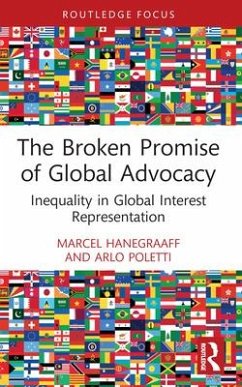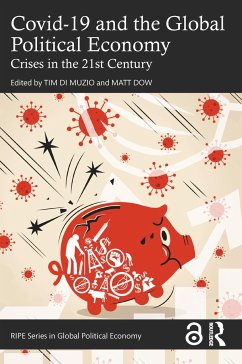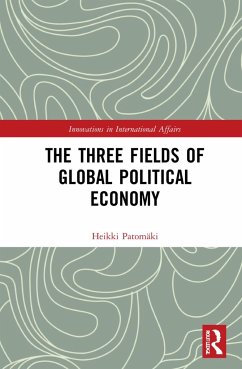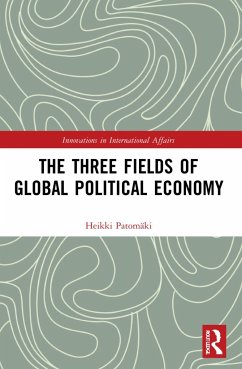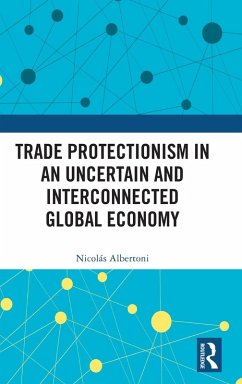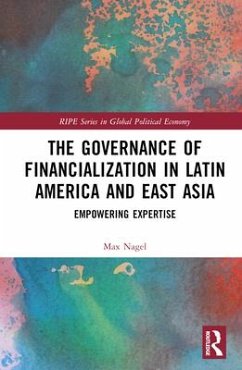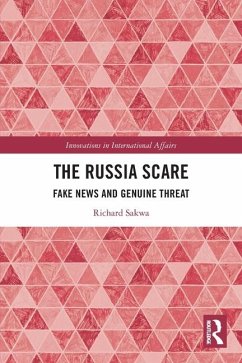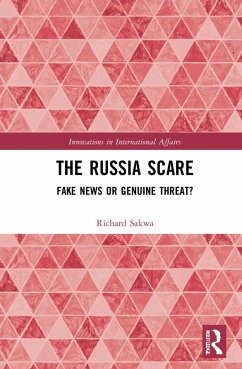
The Broken Promise of Global Advocacy
Inequality in Global Interest Representation
Versandkostenfrei!
Versandfertig in 6-10 Tagen
56,99 €
inkl. MwSt.

PAYBACK Punkte
28 °P sammeln!
The Broken Promise of Global Advocacy addresses two key normative debates associated with the rise of transnational advocacy: whether global interest communities are biased in favor of wealthier countries; and whether the growth of global advocacy implies the emergence of a global civil society truly representative of global constituencies.The authors address these important debates using original data drawn from a large-scale project which maps all organized interests participating in two international venues: the World Trade Organizations Ministerial Conferences (1995-2017) and the United Na...
The Broken Promise of Global Advocacy addresses two key normative debates associated with the rise of transnational advocacy: whether global interest communities are biased in favor of wealthier countries; and whether the growth of global advocacy implies the emergence of a global civil society truly representative of global constituencies.
The authors address these important debates using original data drawn from a large-scale project which maps all organized interests participating in two international venues: the World Trade Organizations Ministerial Conferences (1995-2017) and the United Nations Climate Summits (1997-2017). They leverage this unique dataset to carry out a systematic empirical assessment of contending views on the factors driving the rise of transnational advocacy. In doing so, the book demonstrates that cross-national differences in global interest representation largely mirror states' economic power, and that global interest communities are likelyto remain dominated by organizations representing national-rather than global-interests.
This book will be of great interest to students and scholars working in comparative politics, public policy, governance, international relations, and international political economy.
The authors address these important debates using original data drawn from a large-scale project which maps all organized interests participating in two international venues: the World Trade Organizations Ministerial Conferences (1995-2017) and the United Nations Climate Summits (1997-2017). They leverage this unique dataset to carry out a systematic empirical assessment of contending views on the factors driving the rise of transnational advocacy. In doing so, the book demonstrates that cross-national differences in global interest representation largely mirror states' economic power, and that global interest communities are likelyto remain dominated by organizations representing national-rather than global-interests.
This book will be of great interest to students and scholars working in comparative politics, public policy, governance, international relations, and international political economy.



